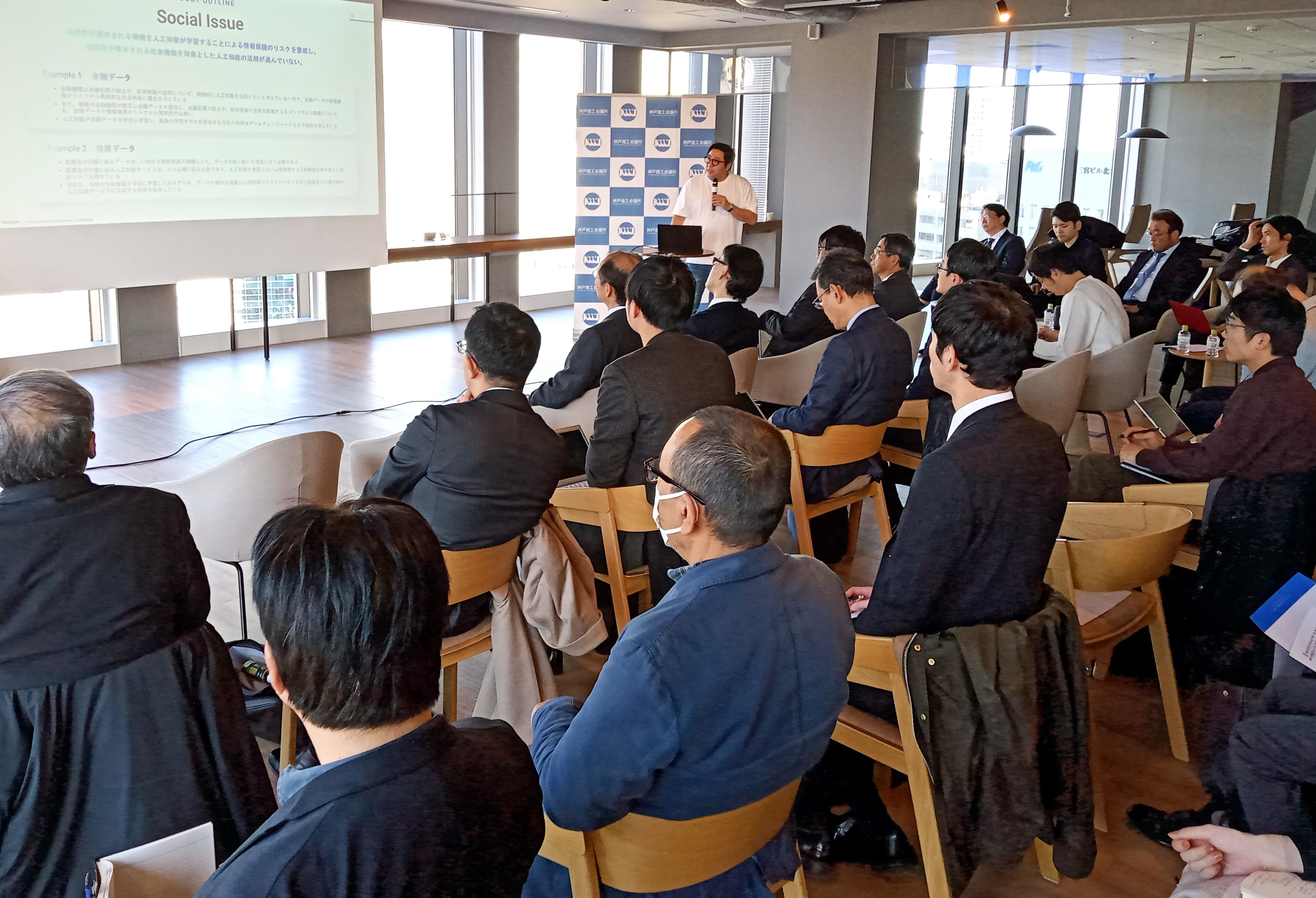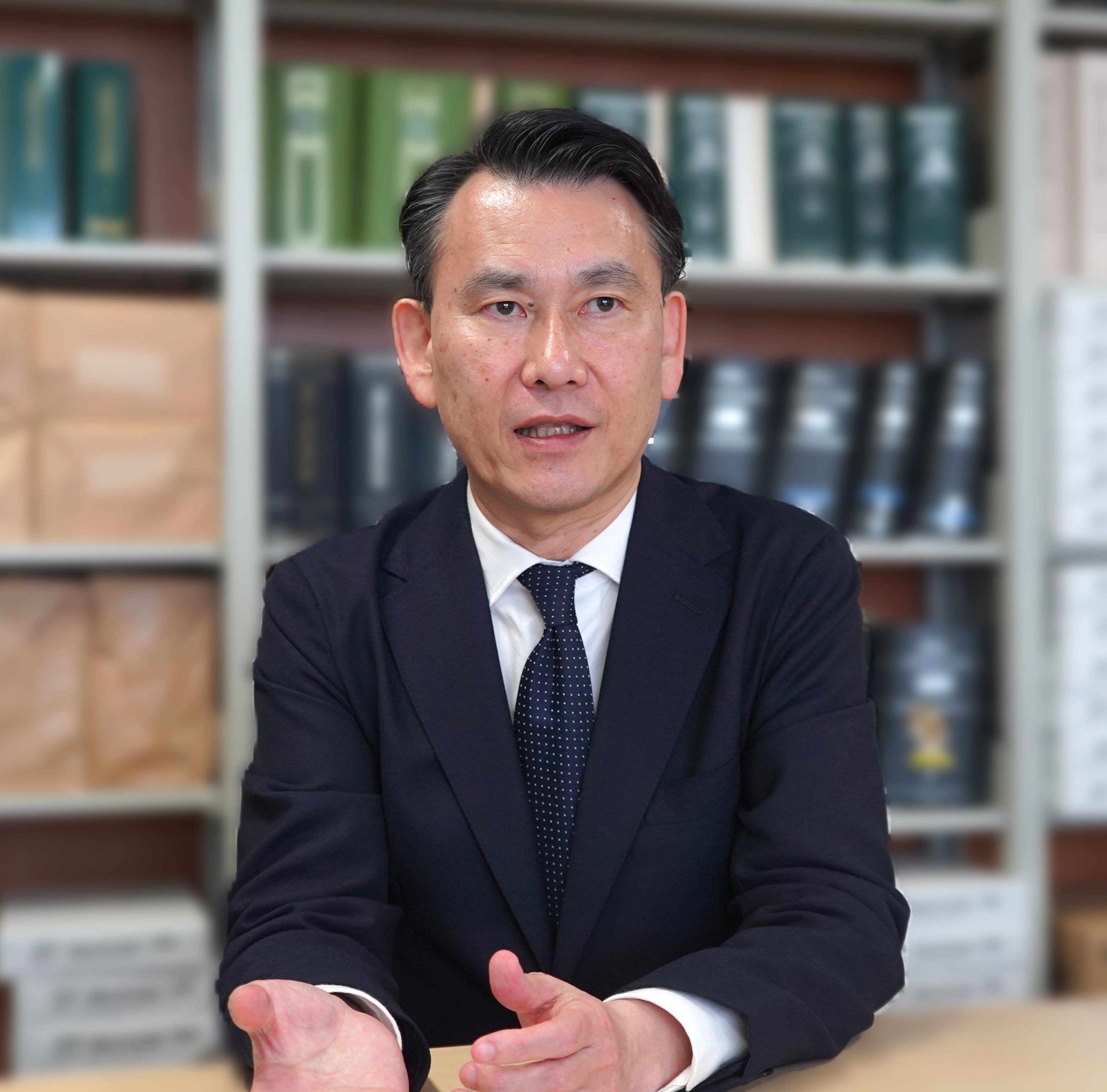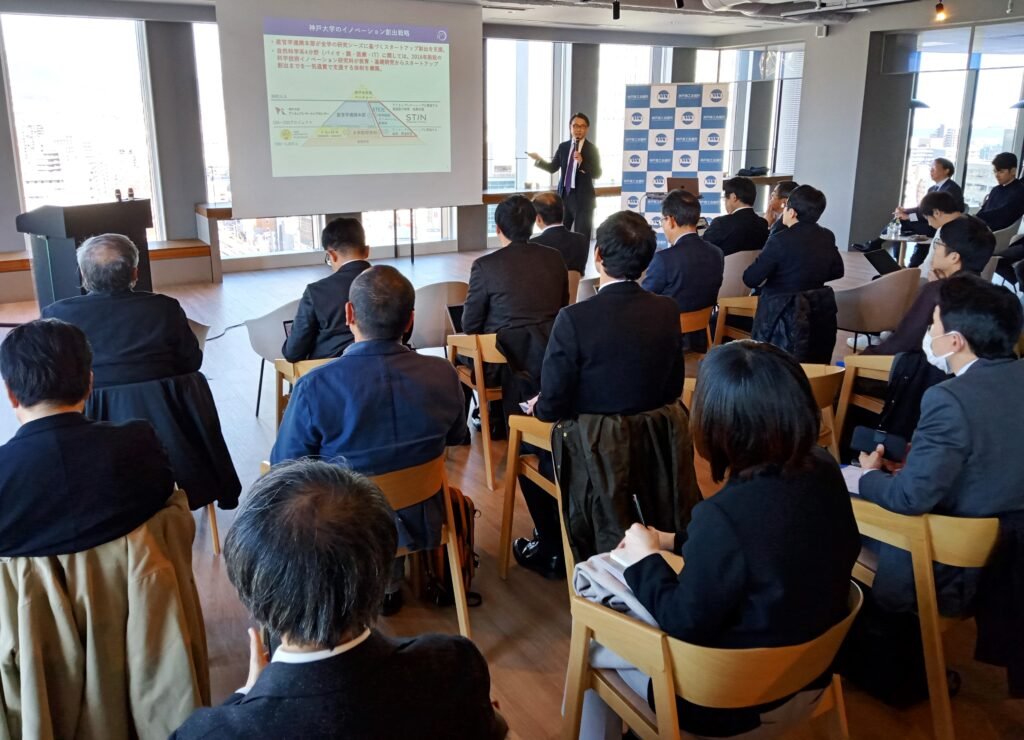Kobe University is working to support university-originated ventures that create new businesses based on research results. The university’s long-term “KU VISION 2030” includes consistent support from entrepreneurship education to financing. Various projects are underway in areas where Kobe University has strengths, such as biotechnology manufacturing.
In late February 2024, the Kobe Chamber of Commerce and Industry held an event in Kobe City titled “The Attractions and Business Opportunities of Ventures Originating from Kobe University.” The event was attended by many people from industry, government, and academia, and they listened intently to presentations by five venture companies originating from Kobe University.

Kobe University Venture Presentation (Chuo-ku, Kobe City)
The company’s business is wide-ranging, including the development of oral vaccines using bifidobacteria, methods for detecting breast cancer from tears, and consulting services centered on wind condition surveys for wind power generation. A special lecture was also given by Masato Tsumamoto, CXO (Chief Transformation Officer) of CellSource Inc., a company involved in regenerative medicine-related businesses, who moved to Tokyo in 2015 after graduating from Kobe University’s Faculty of Embryological Sciences and finding employment. At Sumitomo Corporation.
Government policies are one of the reasons university-originated ventures are attracting attention, and the Ministry of Economy, Trade and Industry has decided on a five-year startup development plan for 2022 and has come up with various support measures. The number of university-launched ventures announced by the ministry each year reached a record high of 3,782 in the 2022 survey. Currently, there are approximately 60 venture companies affiliated with Kobe University, and the number is increasing every year.
In 2016, Kobe University established the Graduate School of Science, Technology and Innovation with the aim of developing science personnel with an entrepreneurial spirit. In 2020, the university fully funded the establishment of Kobe University Innovation (KUI) to promote industry-academia collaboration and technology transfer. Furthermore, in 2023, Kobe University Capital (KUC), a subsidiary of KUI, established the “Kobe University Fund” with private capital, the first of its kind for a national university, with a fund size of 2.2 billion yen, which attracted attention from various circles. . It was the end of June of that year.
Strengths in fields such as biomanufacturing
The five research fields driving startups from Kobe University are biomanufacturing, advanced membrane engineering, medical engineering, health and longevity, and social systems innovation. Bacchus Bio Innovation Co., Ltd., established in 2020 (President: Akihiko Kondo, Vice President of Kobe University), aims to combine digital technology and biotechnology, collaborate with various companies, and mass produce substances. We are working on the development of smart cells, which are cells that have been genetically modified. Companies implement biomanufacturing in society.

Professor Hiroaki Kageyama, who is in charge of the Entrepreneurship Course at the Graduate School of Science, Technology and Innovation (deputy head of the Enterprise Collaboration Department), says of Kobe University startups, “The characteristic of Kobe University startups is that they focus on fields such as the natural sciences.” , Medicine and Life Sciences. A major strength of the city is that research institutes and companies are concentrated in the “Kobe Medical Industrial City” that Kobe City is developing on Port Island, allowing for collaboration and interaction with the local community. ”
The Ministry of Education, Culture, Sports, Science and Technology has selected 12 universities, including Kobe University, to participate in the “Project to Promote the Formation of Japan’s Top Research Universities” in 2024. This project will provide grants of up to 5.5 billion yen to each university over five years. Kobe University plans to combine excellent basic research in biomanufacturing with social implementation to form a world-class co-creation research center. This project is expected to steadily advance facility development on Port Island, accelerating the creation of new startups and an increase in local employment.
From FY2020, in addition to using public funds from the Japan Science and Technology Agency, the university will operate the GAP Fund System, which provides funds to compensate for gaps in commercializing research results. We also created a gap fund system. Relatively small amounts of support are provided from the university’s internal funds. The aim is to encourage young researchers and students to actively engage in business. In addition, human resource development is not limited to classroom entrepreneurship education; the student “Innovation Club,” which was established in 2022, has a large influence.
“Entrepreneurship tends to focus only on starting a business, but broadly speaking, I think it’s about having the ambition to change the world and having an impact on society through your actions. We want to advance education and human resource development from this perspective,” Mr. Kageyama emphasizes.
Touching on Kobe University’s history of developing human resources in fields such as economics, business administration, and law, he looked to the future and said, “Support for human resources in the social sciences is essential for the creation and growth of ventures. We believe that by strengthening collaboration with alumni and companies, we can contribute to the revitalization of Kobe as a whole.”

